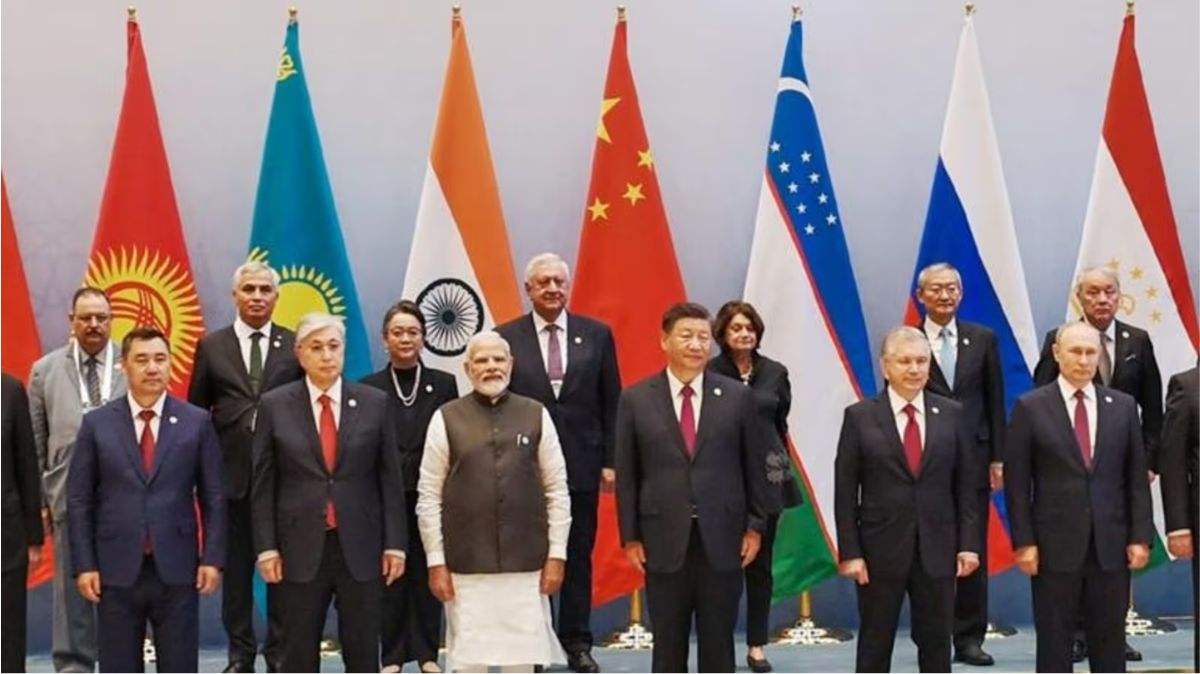As leaders of the Shanghai Cooperation Organisation (SCO) gather in Beijing on August 31, the mood across Eurasia will be one of consolidation. Once seen as a loose regional bloc, the SCO has matured into a serious geopolitical platform—China, Russia, India, Pakistan, Central Asian states, and now partners like Iran are redefining regional security and economic cooperation. The underlying message is unmistakable: a multipolar world is taking shape, and it is increasingly less dependent on American diktats.
Meanwhile, across the Atlantic, the United States—the self-proclaimed “indispensable nation”—is staring at its greatest identity crisis since the Cold War. Once celebrated as the world’s most powerful country, it now risks becoming a parody of itself. The causes are not hard to trace: endless wars, reckless arms sales, collapsing credibility, and a leadership that thrives on slogans but delivers little substance.
For decades, the American playbook has been simple: wage wars abroad and sell arms everywhere. Iraq, Afghanistan, Libya, Syria—the list is long and bloody. Each conflict was waged under noble-sounding pretexts, “freedom,” “democracy,” “human rights”, but the real dividends were measured in oil contracts, weapons sales, and geopolitical dominance. The cost? Millions of lives lost, trillions of dollars wasted, and entire regions destabilized.
Yet, instead of learning from this history, Washington continues down the same path. From supplying arms to Ukraine and Taiwan to flooding volatile regions with weapons, the U.S. behaves like an arms dealer masquerading as a peacemaker. The world sees the contradiction, and America’s global image is in free fall.

Barack Obama’s famous campaign cry, “Yes We Can,” promised hope and change. What did it deliver? More drone strikes, a crippled Middle East, and widening domestic divides. Donald Trump arrived with a different tune, “Make America Great Again”, but has left the United States mocked on the global stage. His trade wars alienated allies, his withdrawal from international accords undermined trust, and his reckless tariffs have turned economic policy into political theatre.
The sad irony is that both slogans—one of uplift, the other of nostalgia—have achieved little. Instead of respect, America has earned ridicule.
Even NATO, once America’s proudest alliance, is fraying. European nations no longer trust Washington’s judgment. Germany seeks energy deals with Russia despite U.S. protests. France openly calls for “strategic autonomy” from Washington. Across Asia, traditional partners like the Philippines and South Korea are hedging their bets, balancing ties with China while keeping one foot in the U.S. camp.

The SCO meeting in Beijing only sharpens this reality: America is no longer the center of gravity. Its allies are distancing, and its adversaries are consolidating.
There is also a darker, unspoken fear—that America’s vast military machine, built on arrogance and unchecked by humility, could one day misfire. With over 5,000 nuclear warheads and a political leadership prone to rash decisions, the nightmare of accidental escalation remains real. Unlike the Cold War era, today there is no clear system of mutual respect or stability. Instead, there is chaos, Twitter diplomacy, and brinkmanship.
America’s troubles are not just global—they are internal. From Texas to California, secessionist whispers are growing louder. Political polarization has reached levels unseen since the Civil War. Racial divisions, economic inequality, and cultural wars eat away at national unity. Just as Europe grapples with disintegration—from Brexit to Catalonia—America too faces the risk of fragmentation.
A superpower that cannot hold itself together cannot expect to hold the world in its orbit.
True greatness is not built on war, fear, or slogans. It cannot be measured in aircraft carriers or stockpiles of nuclear weapons. It rests on unity at home, humility abroad, and peace with neighbours. The SCO’s rise is not just a diplomatic challenge to America—it is a mirror, reflecting how far the U.S. has drifted from these ideals.
As the world watches Beijing this week, the contrast is stark. Nations across Asia, once dominated by American influence, are shaping their own destiny. America, by contrast, seems trapped in nostalgia, clinging to military might and slogans that no longer inspire.
History’s verdict is unforgiving: empires that mistake fear for respect, and slogans for substance, do not endure. Unless Washington learns this lesson, it risks turning its much-vaunted power into nothing more than a global mockery.





